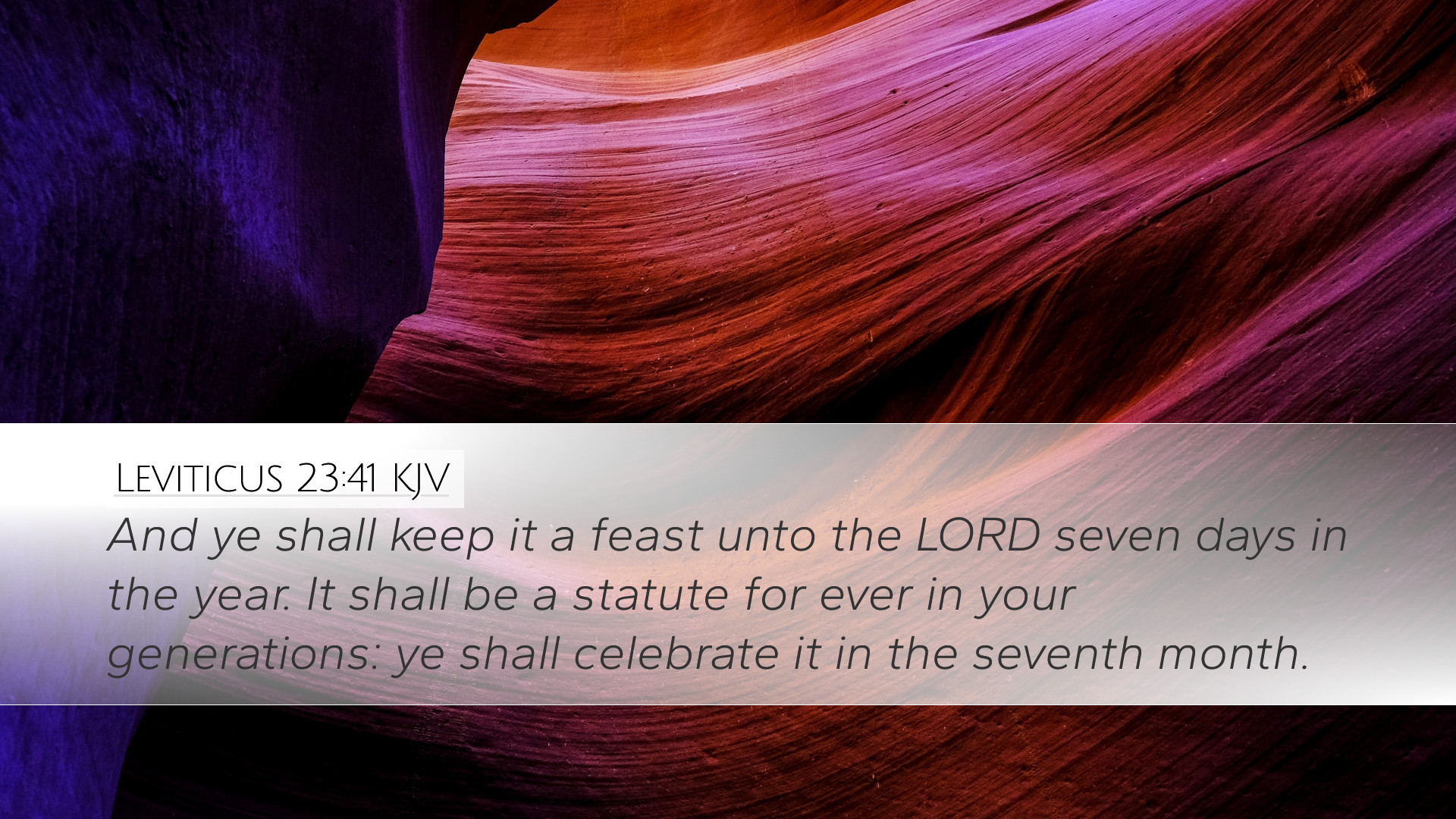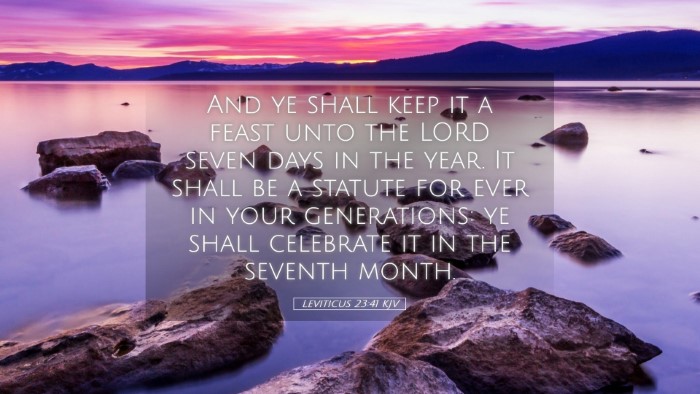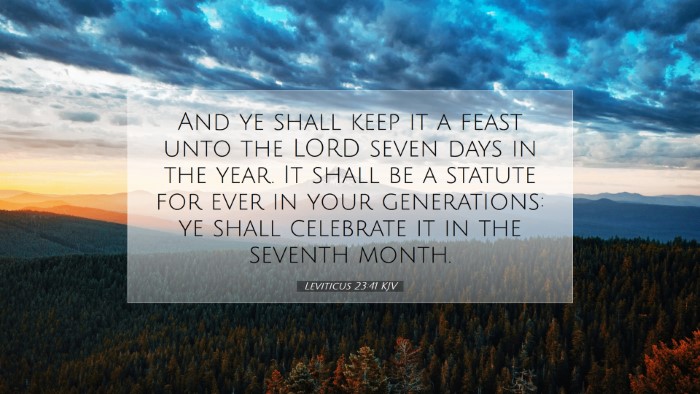Commentary on Leviticus 23:41
Bible Verse: "And you shall keep it as a feast to the Lord for seven days in the year. It is a statute forever in your generations. You shall celebrate it in the seventh month."
Introduction
Leviticus 23 is a pivotal chapter in the Torah, detailing the various feasts and holy convocations instituted by the Lord. Among these, the feast mentioned in Leviticus 23:41 refers specifically to the Feast of Tabernacles (Sukkot), a time of joyful celebration that holds deep historical and theological significance.
Historical Context
The Feast of Tabernacles commemorates the Israelites’ wanderings in the wilderness and their reliance on God's provision. Matthew Henry emphasizes that this feast reminds God's people of their dependence on Him and His continual goodness. It serves not only as a memorial of past events but also as an occasion for renewal of faith among the people.
Theological Insights
Incorporation and Community: Albert Barnes points out that the observance of the feast required communal participation, underscoring the importance of fellowship in worship. The command to gather emphasizes the communal identity of Israel as God’s chosen people.
Celebration and Joy: Adam Clarke notes that unlike other solemn feasts, this occasion is characterized by joy and festivity. The Israelites are called to rejoice in the presence of the Lord, indicating that worship should encompass both reverence and joy.
Application for Believers
The instructions given in Leviticus 23:41 are not only binding for the Israelites but also provide timeless principles for believers today:
- Remembrance: Regularly recalling God’s provisions and interventions in our history fosters a sense of gratitude and trust in His future promises.
- Joy in Worship: Celebrating God's goodness is an essential part of both personal and congregational worship. Believers are encouraged to embrace joy in their relationship with God.
- Community: Participating in communal worship reinforces unity among believers, reflecting the communal aspect of God's covenant community.
Symbolism of the Feast
The Feast of Tabernacles carries rich symbolism that is significant for both Old and New Testament believers:
- Temporary Abode: The booths (sukkot) built during the feast symbolize the transient nature of life and the believer's dependence on God as their ultimate support.
- God's Provision: The feast represents God’s provision for His people during their wilderness journeys, which can be applied to the spiritual sustenance believers receive from Christ.
- Hope of Harvest: The timing of the feast, at the end of harvest, symbolizes the abundance and blessings of God, reminding believers of the spiritual harvest that awaits them.
Final Reflections
In conclusion, Leviticus 23:41 serves as a profound reminder of God's faithfulness and the joy found in communal worship. Pastors and theologians can draw extensively from this scripture to encourage congregations to embrace the spirit of celebration in their worship practices while instilling the importance of remembrance and community. The rich tradition of the Feast of Tabernacles invites believers to reflect on their journey of faith, find joy in God's presence, and anticipate the ultimate harvest promised in Christ.


